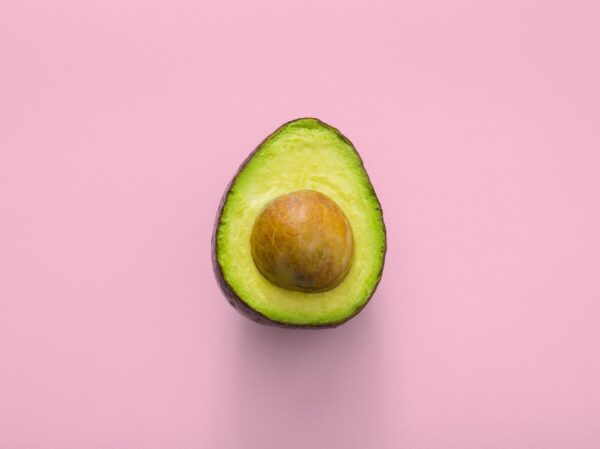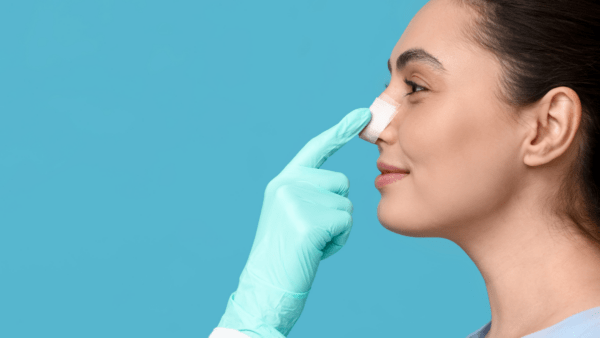
Best Foods and Recipes for Glowing Skin
As we are approaching the colder, darker winter months, the cold can take a toll on our skin. As a result, we have worked with the skincare experts at The Organic Pharmacy, who are passionate about healthy, glowing skin and recognise that the food we consume has a big impact on the health of our skin. Here they have put together an explanation of the most beneficial foods you can eat to achieve a nourished, glowing complexion:

Healthy fats
Fat may make you think of greasy skin and clogged pores, but healthy fats are one of the best food types you can eat if you want to glow. Healthy fats can be found in oily fish such as salmon, mackerel, or anchovies, in nuts and seeds, and in avocados. These foods are also great sources of vitamin E which is an anti-inflammatory that can reduce redness and swelling.
One recipe for a meal rich in healthy fats is a salmon, avocado, and pumpkin seed salad with a lemon dressing, made from two parts olive oil (another healthy fat) to one part lemon juice. Simply season and grill your salmon, slice the avocado, and arrange both over salad leaves. Then, pour the dressing over and finish with a sprinkle of pumpkin seeds.
Good alternatives to this recipe include a salad niçoise, the classic combo of tuna, boiled egg, olives, and tomatoes over lettuce. Other commonly added ingredients include potatoes, green beans, anchovies, or capers. If you’re vegan, you can replace the fish with tofu which is rich in protein, said to work wonders for the elasticity of your skin.
Fruits and veggies
It’s always a good idea to get your 5-a-day, but eating fruits and vegetables can be good for glowing skin as well as for your body. Among the best to look out for are those rich in beta-carotene (such as sweet potato and leafy greens) and vitamin C (found in peppers, tomatoes, sprouts, oranges, and kiwi). Beta carotene can help skin cells to reproduce, combatting dullness, while vitamin C brightens the skin. It’s also important to drink enough water, as dehydration can cause your skin to lose its glow. In addition to drinking water, look for foods with a high water content like cucumber, tomatoes, and mushrooms.
Salads and fruit salads are of course great ways to eat a lot of fruits and veggies at once, but in autumn you might be looking for something a bit heartier. A rich ratatouille, comprising baked or stewed vegetables such as peppers, onions, courgette, aubergine, and tomatoes, is a warm and filling dish that can be customised to include whatever vitamin-rich produce you have in your fridge. For protein, you could try crumbling feta cheese on top or cracking some eggs into the sauce and baking them for a shakshuka-inspired meal.
Foods to avoid
While healthy fat is good for your skin, unhealthy fats have the opposite effect. Bad fats — trans fats and saturated fats – are prevalent ingredients in processed ready meals and junk food, which is why it’s a good idea to eat clean for a clear and glowy complexion. You may also wish to eschew fatty meats like beef and pork (especially bacon and sausages) in favour of leaner meats like chicken and turkey, or better yet, fish. You’ll find that many autumnal recipes are vegetable-based anyway, as it’s traditionally the harvest season, so totally avoiding meat around this time shouldn’t be too much of a challenge.
Sugar is an inflammatory, and it can also accelerate ageing which can make your skin appear duller and less glowy. So, it’s best to avoid sweet treats for the sake of your skin. Sugar can of course be found in cakes and sweets, but it’s also present in refined carbohydrates like white bread, white rice, and pasta. If you want to eat carbs, which is a good idea when the weather turns cold, brown or wholegrain varieties are much better for you.
Alcohol is full of sugar, which is bad enough on its own, but as a diuretic, it also dehydrates you causing your skin to lose bounce and illumination. Avoiding alcohol can ensure your skin is as glowy as possible, but if you do imbibe, make sure you rehydrate and restore lost nutrients the next day so your skin can recover.
Margo Marrone, Co-Founder of The Organic Pharmacy comments:
“Eating the right foods can help you go a long way towards your skincare goals. If you need a boost or just want to ensure you’re doing everything you can to nourish your skin, supplements for skin radiance are formulated to promote the formation of collagen and tissue repair as well as provide all the vitamins and minerals you need to make your skin glow. Like other vitamin supplements, these are usually taken orally once or twice a day.
“In addition to nourishing your skin from the inside, it’s important to treat it from the outside too. Glow is only achieved if your skin is healthy, so starting with a foundation of cleansing, exfoliating, and moisturising, look for serums and masks that contain highly concentrated doses of antioxidants and vitamin C. These will boost collagen, minimise pores, and brighten your complexion, helping your skin to glow.”














































